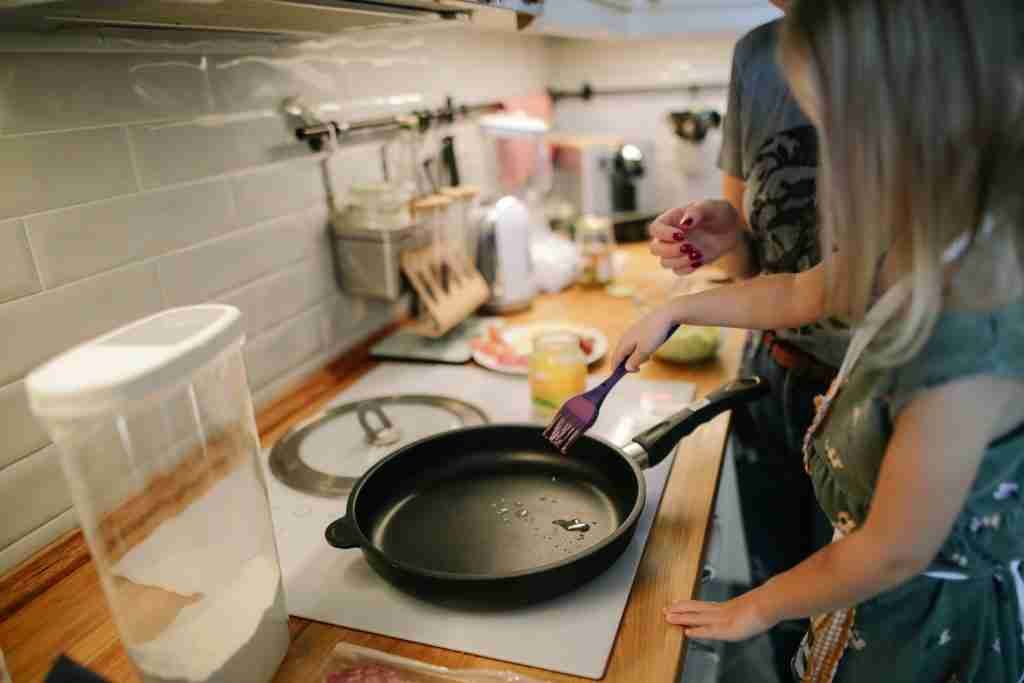
Table of Contents
If you’re an educator looking for new ways to engage your children in math, look no further than your kitchen! Math can be an exciting and engaging learning experience for kids of all ages. From recipe measurements and ingredient conversions to counting and sorting, the kitchen is a great place to incorporate math into your curriculum. In this article, we’ll explore the benefits of math, activities for kids, tips for teaching math in the kitchen, and online resources to help you make math learning fun and engaging.
Introduction to Homeschool Math
Math is an important part of the homeschool curriculum. It helps children develop the skills they need to succeed in school and beyond. Math is a language, and it is a tool for problem-solving and decision-making. It is a critical skill for students to learn, and it can be taught in a variety of ways. Doing math in different ways is great to make learning it fun and engaging for kids.
Math can be taught in a variety of ways. Some parents choose to use a textbook or online curriculum, while others prefer to teach math through hands-on activities and projects. Many parents choose to incorporate math into everyday life through tasks such as counting, sorting, and measuring. The kitchen is a great place to practice those math skills. Who doesn’t love baking?! There are many opportunities to use math in the kitchen, such as measuring ingredients, converting recipes, and baking. Even the littlest of hands can help mixing and pouring.
Benefits of Math
Math has many benefits for kids. It helps them develop problem-solving skills, encourages critical thinking, and strengthens their understanding of mathematics. Math also helps kids build confidence in their math skills. When children practice math in the kitchen, they are able to see the real-world applications of the math they are learning. This helps them understand the importance of math and gives them a sense of accomplishment.
Another benefit is that math can be tailored to each child’s individual needs. Parents can choose the math topics that are most relevant to their child’s learning and tailor activities to fit their child’s interests. This helps children develop a strong understanding of math concepts and encourages them to think outside the box.
Practicing Math in the Kitchen
The kitchen is a great place to practice home school math. Many everyday tasks in the kitchen involve math, such as measuring ingredients, converting recipes, and weighing food. Kids can also practice counting and sorting while in the kitchen. This helps them develop basic math skills, such as addition, subtraction, multiplication, and division.
When practicing math in the kitchen, it’s important to focus on the real-world applications of math. For example, when measuring ingredients, it’s important to discuss the importance of accuracy and how a difference in measurements can affect the outcome of a recipe. This helps kids understand the importance of math in everyday life.
For more advanced math activities, parents can have their kids practice fractions, decimals, and percentages while in the kitchen. They can also practice problem-solving skills by creating their own recipes. This helps them understand the importance of precision and accuracy in the kitchen.
The Benefits of Hands-On Learning in Home School Math
One of the key benefits of home school math is that it encourages hands-on learning. Kids learn best when they are able to apply what they are learning in a real-world setting. In the kitchen, kids can practice math skills with real-life tasks. This helps them understand the importance of math and gives them a sense of accomplishment.
Hands-on learning also helps kids develop problem-solving skills. When kids practice math in the kitchen, they can see how math can be used to solve everyday problems. This helps them develop the skills they need to succeed in school and beyond.
Math games are also a great way to foster collaboration between siblings. You can have your kids work together to complete math activities in the kitchen. This helps them develop teamwork skills and encourages cooperation.
Online Resources for Home School Math
There are many online resources available to help parents teach home school math. There are websites and apps that offer interactive activities, games, and videos to help kids learn math. These resources are a great way to enhance your child’s math learning experience and make it more engaging.
There are also online forums where parents can ask questions and get advice from other home schoolers. This is a great way to connect with other parents and get ideas for math activities.
Conclusion
Math is an important part of the home school curriculum. It helps children develop the skills they need to succeed in school and beyond. The kitchen is a great place to practice math and help to incorporate it into everyday life. There are many activities and games that can be used to teach math in the kitchen, such as measuring ingredients, converting recipes, and weighing food. There are also many online resources available to help parents teach home school math. With a little creativity and the right resources, you can make math learning fun and engaging for your kids!
What is a favorite recipe your kids like to cook or bake? Share below!
Check out this post!



